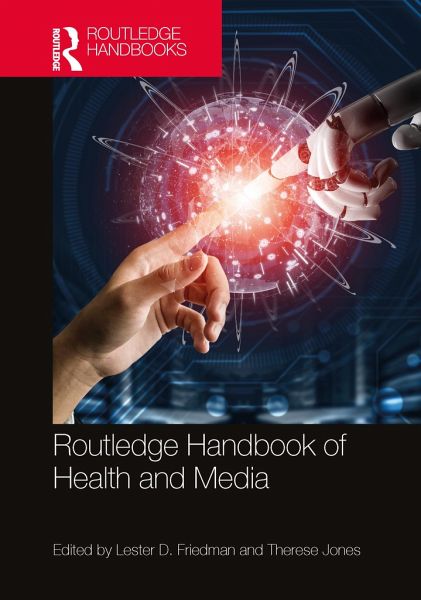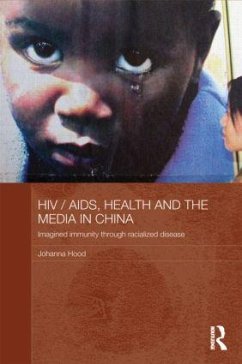
Routledge Handbook of Health and Media
Versandkostenfrei!
Versandfertig in 1-2 Wochen
234,99 €
inkl. MwSt.
Weitere Ausgaben:

PAYBACK Punkte
117 °P sammeln!
The Routledge Handbook of Health and Media provides an extensive review and exploration of the myriad ways that health and media function as a symbiotic partnership that profoundly influences contemporary societies. A unique and significant volume in an expanding pedagogical field, this diverse collection of international, original, and interdisciplinary essays goes beyond issues of representation to engage in scholarly conversations about the web of networks that inextricably bind media and health to each other. Divided into sections on film, television, animation, photography, comics, advert...
The Routledge Handbook of Health and Media provides an extensive review and exploration of the myriad ways that health and media function as a symbiotic partnership that profoundly influences contemporary societies. A unique and significant volume in an expanding pedagogical field, this diverse collection of international, original, and interdisciplinary essays goes beyond issues of representation to engage in scholarly conversations about the web of networks that inextricably bind media and health to each other. Divided into sections on film, television, animation, photography, comics, advertising, social media, and print journalism, each chapter begins with a concrete text or texts, using it to raise more general and more theoretical issues about the medium in question. As such, this Handbook defines, expands, and illuminates the role that the humanities and arts play in the education and practice of healthcare professionals and in our understanding of health, illness, and disability. The Routledge Handbook of Health and Media is an invaluable reference for academics, students and health professionals engaged with cultural issues in media and medicine, popular representations of disease and disability, and the patient/professional health care encounter.














